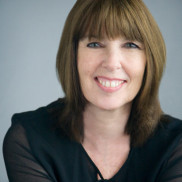Angela Hartman: Integrating Holocaust Education Into the Library


Educator Angela Hartman of Hutto, Texas attended TOLI’s New York summer seminar in 2016, where she was struck by the support and inclusion of both the leaders and her fellow educators. Now, she’s taken these lessons back to her schools in order to educate students about the Holocaust.
Angela Hartman is bringing the lessons of the Holocaust to students in an unusual way: as the librarian at Hutto High School, Hutto Middle School, and Farley Middle Schools, she doesn’t have the typical classroom setting in which to teach. Because of this, she decided to get creative, working events with survivors and encouraging faculty to teach their students about the Holocaust.
“There was a good balance of the hard and the heartbreaking [with] celebration,” she recalls of the TOLI seminar. “[We were] looking at the humanity: looking at the people who helped, the people who resisted and rescued and were brave enough to hide somebody—it’s all of it, not just the death, but finding any good in all the bad.”
She was also struck by the prevalence of writing throughout the seminar, and this has had a lasting impact on her work. Now, she has her students write a few sentences when they’re discussing something important.
“Not always to share but just the opportunity to put that down on paper. That really helped me.”
Angela first became interested in Holocaust education when she took a group of eighth graders to an exhibit about Anne Frank in a nearby public library. The students were reading the diary of Anne Frank, and Angela felt this would be the perfect opportunity to make a lasting impact. The experience ended up having a profound effect on her, as well.
“I was just amazed at what I didn’t know, because I had never been taught about the Holocaust,” she says about that day at the exhibit. After that, Angela decided to educate herself. That summer, she attended the Belfer National Conference for Educators and met a survivor for the first time.
“I just knew from there that those stories had to be told; that this history was just so important,” she recalls. “I didn’t know it, so I’m sure a lot of people don’t know it.”
After Belfer, she attended a seminar at the World War II museum in New Orleans. Someone she met there told her about TOLI, and after learning more through social media, she decided to apply for the summer seminar.
One of Angela’s strongest memories of the week is the feeling of support from the group.
“We would be around Olga’s table and it would be so intense and so emotional and Sondra and Jennifer and everybody who organized it made sure that we didn’t leave with that at the end of the day,” she remembers. The relationship building allowed her to feel like she could ask anything and the group would support her. Because of this camaraderie, Angela is still close with almost everyone in her cohort.
Angela continues to educate her students and community about the Holocaust. She recently helped organize a Texas Liberator exhibit at her school where she was able to bring in a liberator from Austin who grew up in Berlin. He came to United States when he was 16, but was drafted into the military and sent as a liberator to Germany.
Living in a state that borders Mexico, Angela also thinks about immigration in relation to the Holocaust. She recently attended a rally in El Paso called Teachers Against Child Detention, an all-day teaching and learning event.
“This is not the first time that the US has said you cannot come here, and look what happened,” she remarks. Her school is over 40% Hispanic, and while not all those students are refugees, some are. “It’s a good lesson: this happened before, it’s happening again. Who are we to say anybody is illegal? Nobody is illegal.”
To learn more about the Texas Liberator Project, please click here: http://texasliberators.org/
